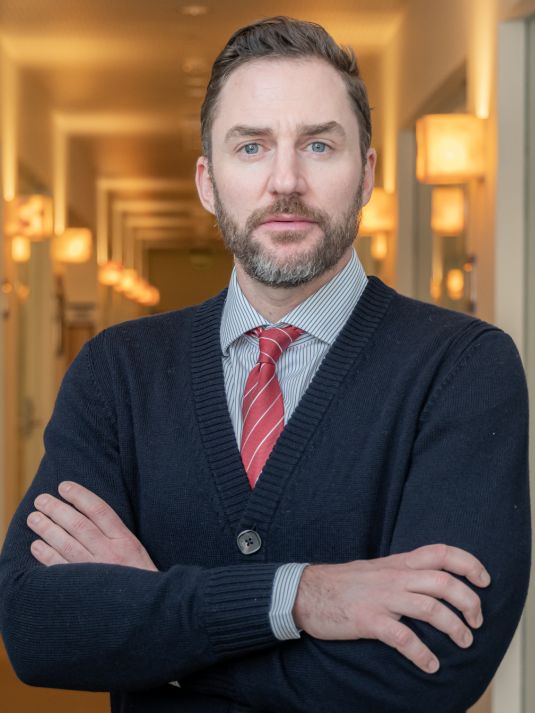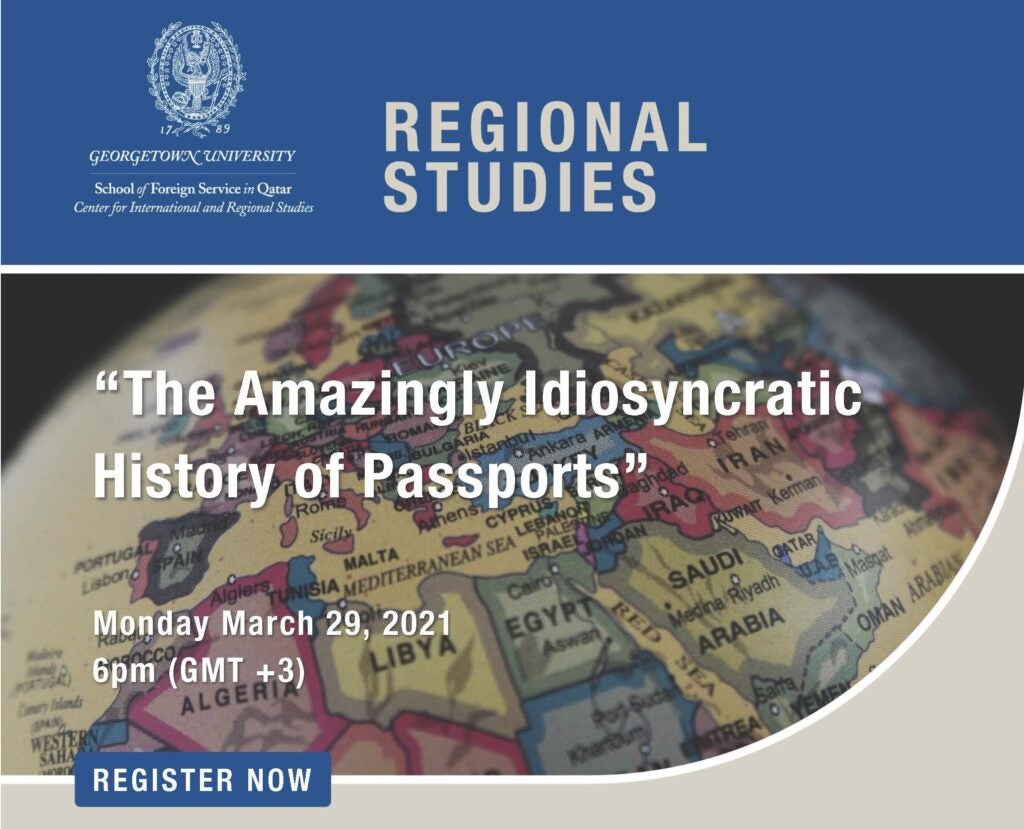The Amazingly Idiosyncratic History of Passports
A CIRS Fellow Talk by Edward Kolla

About the Speaker:
Edward Kolla is an Associate Professor of History at Georgetown University in Qatar. He has taught history for 10 years at GU-Q. Kolla has also held research fellowships, most recently, at the Institute for Historical Studies at the University of Texas at Austin and the Max Planck Institute for comparative Public Law and International Law in Heidelberg, Germany. His work sits at the intersection of history, international relations, and law and includes Sovereignty, International Law, and the French Revolution (Cambridge, 2017). He is currently finishing a book on the history of passports.

About the Lecture:
When COVID-19 hit, gone, suddenly, was our ability to grab our passports, hop on a plane, and be in a new country. But something else we took for granted, back in those halcyon days, was the very need for passports to enjoy international mobility. Though ubiquitous and seemingly all-necessary, passports are something of a historical fluke. While travel documents of all sorts date back to the start of recorded history, the story of how we arrived at these little booklets – which, by the way, are totally uncodified in international law – is quirky, complex, and counter-intuitive.